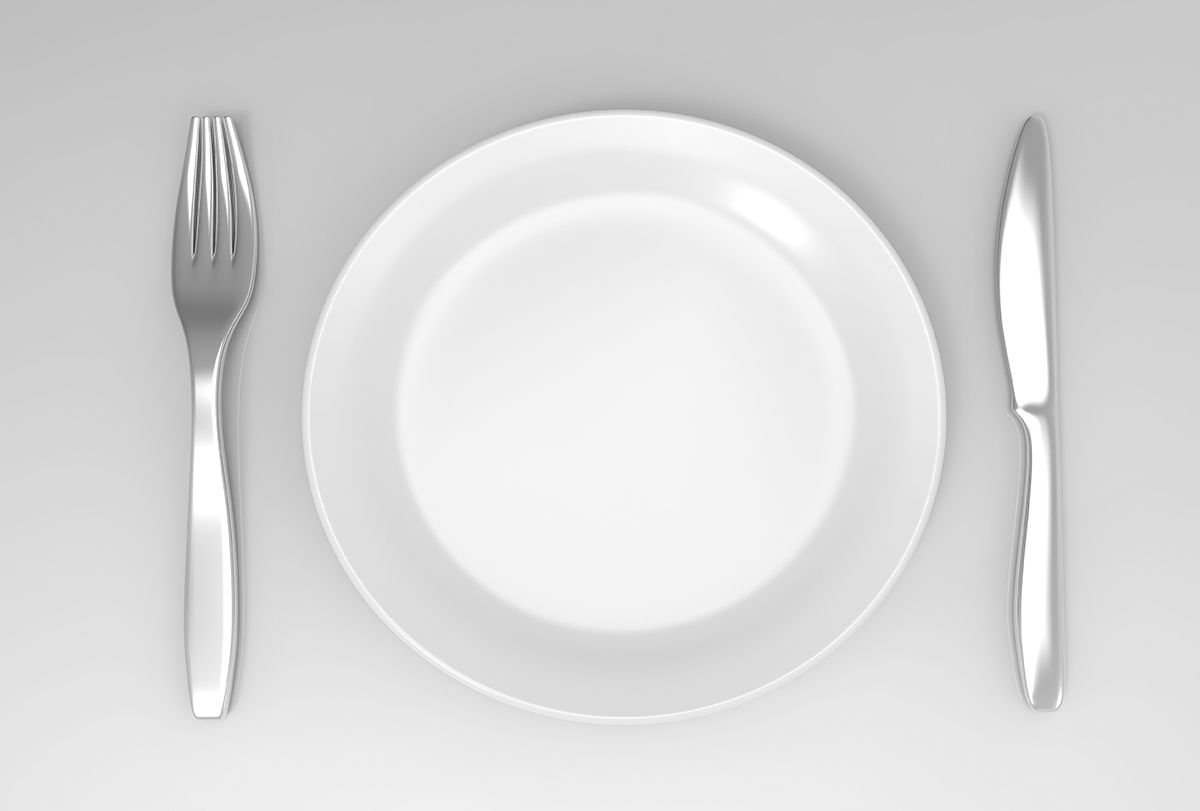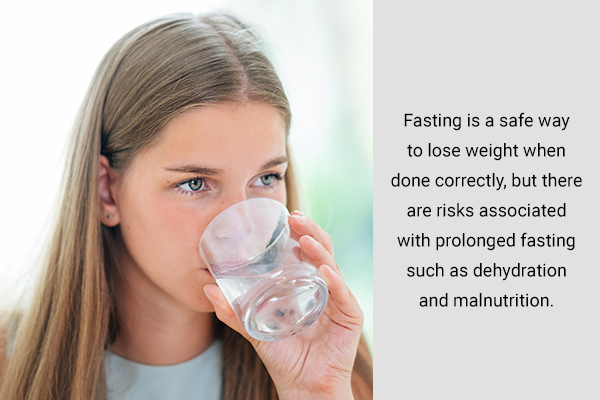In this article:
Fasting, although not the most popular diet, has been around for centuries. It’s a true testament to the body’s ability to survive.

The stomach is just one of the many parts of the body that shrinks during fasting, and scientists are still researching why this happens.
When you think of fasting, you often think of going without food. But there are different types of fasting – some people fast from food, while others may fast from certain activities or substances.
Fasting has been practiced for centuries, and there are many different reasons people choose to do it. Some people fast for religious or spiritual reasons, whereas others do it for health reasons. (1)
Fasting has been shown to have many health benefits, including weight loss, improved insulin sensitivity, and reduced inflammation. (2)
It may also help to “shrink the stomach” by reducing the amount of food that you eat. When you fast, your stomach doesn’t need to expand as much to accommodate a large meal, and over time, this can lead to a reduction in stomach size. (3)
Different kinds of fasting (full day such as during Ramzan, intermittent fasting, etc.) have different effects on health. The impact of fasting varies depending on several factors such as body type and initial weight. (4)
Research has shown that intermittent fasting, for example, has a beneficial impact on weight loss and other cardiometabolic outcomes (such as cholesterol levels). (5)
Read below to know more.
Can Fasting Really Shrink the Stomach: A Detailed Explanation
- When you fast, you give your digestive system a much-needed break. The stomach and intestines are constantly working to digest the food we eat. By not eating for a period of time, these organs can rest and rejuvenate. (1) In this way, fasting may help to shrink the stomach back down to its original size. (6)
- When you eat large meals, your stomach expands to accommodate the food. Over time, this can cause the stomach to stretch and become larger than it was intended to be. When you fast, your body breaks down stored food and uses it for energy, which causes your stomach to empty and contract. (7)(8)
- Moreover, fasting can help to reduce the amount of food that you eat overall, which can also lead to a reduction in stomach size. (1)
- In addition to shrinking the stomach, fasting can also help to cleanse and detoxify the body. When you fast, your body can focus on eliminating toxins and waste products that have built up over time. This can lead to improved health and well-being. (9)
- If the stomach is stretched from a recent meal, it produces fewer hunger-inducing signals. (10) That’s why people who are full often don’t feel like eating more, even if food is right in front of them. So, does this mean that you can shrink your stomach by fasting? Maybe. When you keep fasting for longer time intervals then your stomach doesn’t look full and it gets shrunk as compared to when you are full, and after fasting for longer time duration more hunger-inducing signals are produced. This could lead to a smaller appetite and help you eat less overall. (10)
- However, there’s no guarantee that fasting will shrink your stomach. And if you’re not careful, it could backfire and make you even hungrier. If you’re trying to control your weight or lose weight, it’s probably best to stick with other proven methods such as eating regular meals and exercising regularly.
Important Points to Remember

Here are a few other things you should keep in mind when fasting to shrink your stomach:
- It’s important to talk to your doctor before starting any type of fasting regimen, especially if you have medical conditions or take medications that could be affected by fasting.
- When you do start fasting, be sure to listen to your body and make sure you’re not becoming overly hungry or dehydrated.
- Remember that fasting is not a miracle cure-all; while it can offer some benefits, it’s not a replacement for healthy eating and exercise habits overall. (2)
- Fasting can help to reduce the size of your stomach because your stomach gets adapted to smaller meals, not instantly but over time. (8)(10)
Best Ways to Reduce Appetite
There are many different ways to reduce appetite, and the best approach depends on the individual. Some common methods include:
- Eating more protein-rich foods: Proteins take longer to digest than other nutrients, so they help to keep you feeling full for longer. Protein-rich foods also tend to be more filling than other foods. (11) A randomized controlled trial has shown that protein intake leads to higher fat loss. (12)
- Avoiding processed and sugary foods: These foods are often high in calories but low in nutritional value, so they can cause you to feel hungry again soon after eating them. (13)
- Eating smaller meals more often: Eating smaller meals and chewing thoroughly can help to control your blood sugar levels, which can in turn help to reduce hunger pangs. (14)
- Drinking plenty of water: Water can help to fill you up and may also help to reduce cravings for unhealthy snacks. (15)
- Avoiding trigger foods: If there are certain foods or habits that seem to make your hunger worse, avoid them or eat them in smaller amounts. (16)
Is It Safe to Fast for a Long Time?

If you’re considering fasting for a long period, it’s important to consult your doctor first.
Fasting can be safe if done correctly, but there are risks associated with extended fasting, such as dehydration and malnutrition. When done under medical supervision, fasting can be an effective way to cleanse the body and promote healing.
However, it’s not recommended for everyone, and it’s not something that should be undertaken lightly.
Most-Asked Questions About Fasting
I want to lose weight quickly. What can I do to shrink my stomach?
The most sustainable way to lose weight is to do it through the right combination of exercise and diet. Quick weight loss may be detrimental to health.
If I fast during Ramzan, will my stomach shrink?
Your stomach may feel like it has shrunk due to the reduced quantity of food, but it is important to understand that the stomach is an elastic organ and can expand and contract according to the quantity of food you consume.
Final Word
There is some evidence to suggest that fasting can help to shrink the stomach, but more research is needed in this area. Ultimately, “shrinking” the stomach is a temporary solution to losing weight, and more sustainable approaches to weight loss might be healthier in the long run.
If you are considering trying fasting to lose weight, speak to your doctor and nutritionist first to make sure it is safe for you. There are many different ways to fast, so be sure to do your research and choose a method that will work best for you.
- Was this article helpful?
- YES, THANKS!NOT REALLY


